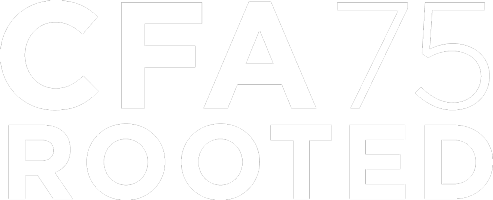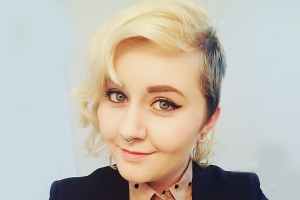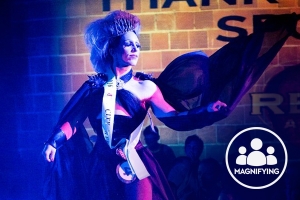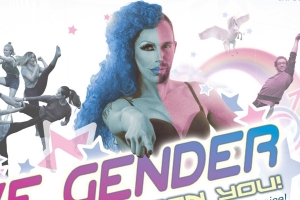Displaying items by tag: Drag
Alum Spotlight: Alex Vermillion
By Guest Writer and Emerging Leaders Ambassador, Ashley Chin-Mark. Photos courtesy of Alex Vermillion.
Arguably, one of the major concerns of contemporary society is that the Millennial Generation is becoming increasingly removed from the human experience and losing the ability to form meaningful interactions. However, the progressive work of University of Utah English and Theater alumnus, Alex Vermillion, is shattering that perception by engaging the community and captivating new audiences through bold actions and meaningful language.
An advocate for gender free roles, Vermillion (ze/zir/zirs) has made it zer mission to advocate for free gender roles and a transgender individual, Vermillion is addressed with Ze/Zir/Zirs. Ze has made it zer mission to “represent less recognized communities” and “portray voices that are less heard,” through zir roles as a freelance Dramaturg, a Drag Queen, as the Communication Coordinator for the Utah Museum of Contemporary Art (UMOCA), and as the Editorial Intern/Writer/Contributor for the SLUG Magazine.
An accomplished educator and editor, Vermillion returned to the university last year to inspire students as the 2015 Humanities Department Convocation Speaker and, most recently, as the Dramaturg for the Theatre Department’s modern adaptation of “The Two Noble Kinsmen.” Ze explains zir interest in Shakespeare, “He really captures what humans are comprised of…[the nature of his work asks] ‘Are you connecting with the audience?,’ ‘Are you playing the role?,’ ‘Are you having fun?’” For Vermillion, the fun is found in the bard’s clever use of satire, which ze believes is “the best way to understand and relate to contemporary issues,” and the major focus of zir work in “The Two Noble Kinsmen.” Ze credits zir project mentor, Martine Kei-Green Rogers, in assisting zir research in the background of plays and forming an intimacy with the text.
Vermillion divulged that ze “loves working with magic in plays,” a staple in all of Shakespeare’s works, and, as a self-proclaimed Marvel superhero nerd, ze derived additional inspiration from the comic book and gaming technology industries. Similar to theatrical production aspects, ze considers the technological aspects, mentioned in comics and used in games and films, a great avenue for mixing logic, creativity, and imagination.” Alex Vermillion is accomplishing super feats. Through zir advising with “Out Loud,” an artistic platform for youth voices in the LGBTQIA+ community at the UMOCA (created by Elly Baldwin, UMOCA's Curator of Public Engagement), ze develops inclusive programs for teens that help “students build positive social connections and share their experiences with others.”
Recently admitted into the Yale School of Drama’s Dramatic Criticism Masters Program, Vermillion plans to finish five years of intensive studies before opening an interactive, Queer Shakespeare Theatre complete with an underground Drag Show and Bar and a Homeless Center for Queer Youth with art education programs and performance opportunities. Of less represented populations, like the LGBTQ community, ze says, “We have to go to them, invite them in, and create a more inclusive environment by asking them, ‘How can we accurately represent you?’” Vermillion will continue to use this power in a positive light to frame live performances, artistic projects, and journalism compositions as “community–oriented activities” that encourage individuality and self-expression.
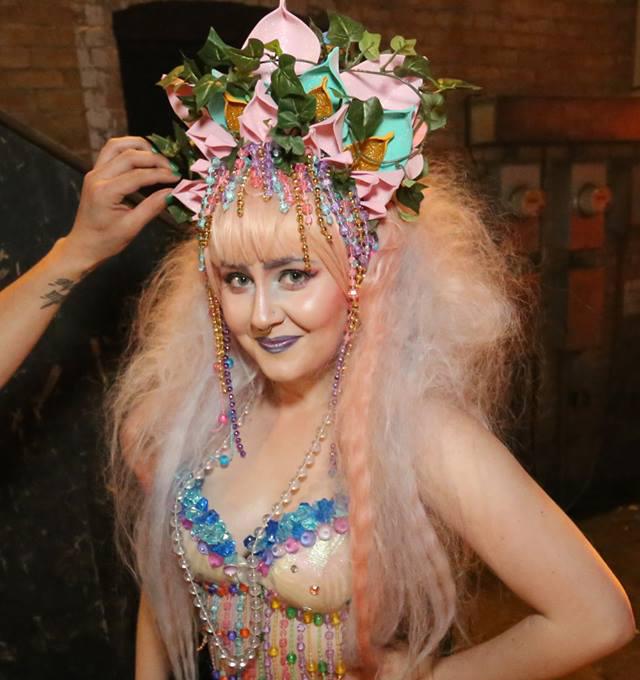
MAGNIFYING, No.2: Shane Davis aka Janice Janice Janice
We spoke with School of Dance MFA graduate student and guest teacher Shane Davis, also known as Janice Janice Janice, about his evolution into dance, drag, teaching and self realizations about his true self.
By Noelle Sharp.
Tell us about yourself: Name, where you are from, what you do and how you got into in your field of work.
My name is Shane Davis. I also go by the performing name of Janice Janice Janice. I am most recently from Provo, Utah, where I attended Brigham Young University garnering a Bachelors of Arts in Modern Dance. I grew up near Seattle, WA, Houston, TX, and Albuquerque, NM.
What do I do?
Right now I am working on my MFA in modern dance and the graduate certificate in Gender Studies. I hope to be a choreographer for various venues, including music videos, Broadway and different dance troupes. Outside of academia, I perform as Janice Janice Janice around Salt Lake City. I have not become to proliferated in the Drag scene here in SLC but I hope to make my mark a little more pronounced in the coming months after graduation. I have been accepted as a performer at the Austin International Drag Festival which takes place in November. I am also currently teaching a course entitled "Dragging Gender into the 21st Century" that is a seminar type survey course that is part discussion of issues in and around Drag and part embodiment of the subject matter.
My sister Amanda, who is one of my best friends and mentor, encouraged me to go into both modern dance and Drag. I began my undergraduate career at BYU in the film program, but once one of my instructors said that my film art should primarily testify of Joseph Smith and Jesus Christ, I quit the program and drifted around for a couple of semesters. My older sister suggested that I take a modern dance class. I did and I fell in love. Years later, once I returned from an LDS mission and after coming out to Amanda as gay, she encouraged me to watch RuPaul's Drag Race. I got around to it and fell in love with that performance form and decided to try it out. I participated in the first (that we know of) Drag pageant in Utah county and won second place. I have since been involved with the scene here, and have won first place at the Miss City Weekly pageant that kicks off pride weekend each summer.
I decided to come to grad school after working a year in a dead end job after graduation with my undergraduate degree and I had a panic moment. That that job was not what I wanted to do with my life. I had more to learn. So I begged the director of the MFA program to allow me to audition (as I was a few months late) and the modern dance faculty granted me an audition and accepted me. I then also discovered the Graduate certificate in gender studies and decided to pursue that as I lacked sophisticated and critical thinking on the topics of sexuality and gender. I wanted to fill in holes of my understanding and to push my thinking.
What has surprised you the most in your life?
Uhf, that I'd be here of all places. Five years ago, I was still immersed in Mormonism and trying to adhere to their standards of compulsory daily drag. I had even gone back into the closet, telling my parents to disregard my previous coming out and that I was going to date women and make things work out in the path that they had chosen for me from the time the first ultrasound dubbed me a "boy." Now to see a crown and trophy hinting at my wins in a somewhat subversive art form, and also teaching a university course on Drag, is a tad surreal. I have traded in my missionary ties for high heels.
What do you wish you had known/been told?
I know this is kinda out of left field (what... a sports reference?), but I wish I had know or been told that I was not a freak and that I was ok to not be the same as the other "boys." I wish I had known that there were many ways to be a person in this world and to not have the yearning to put myself in a restrictive box. I wish I had come out at an earlier age and been stronger in my sense of self. I wish I had known about queer and feminist theories. Theorizing can be therapeutic and healing. I wish I had known that it was ok to experiment, ok to be fluid, and ok to fail.
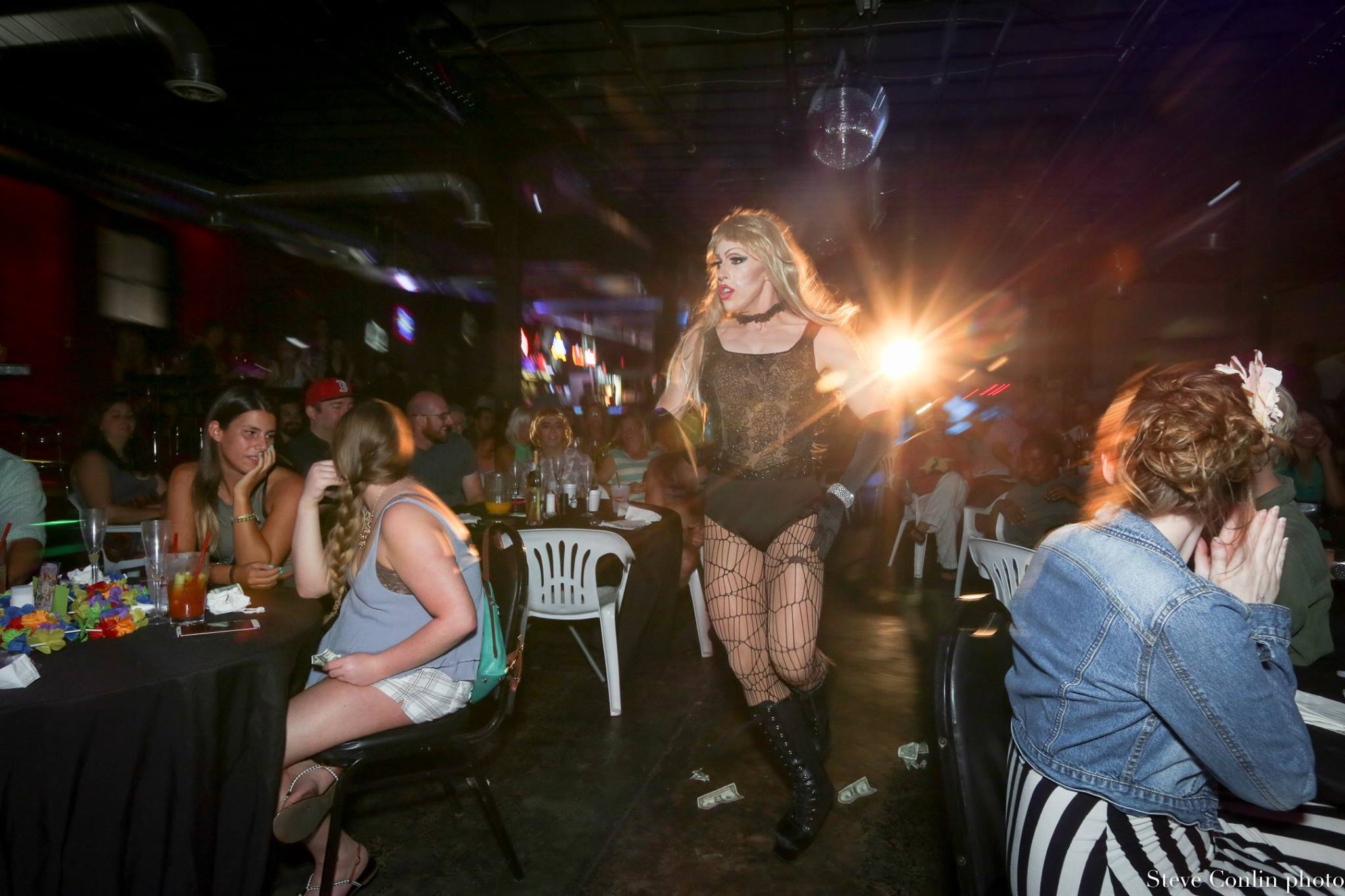
Read about Davis's "Dragging Gender into the 21st Century" class here. Photos courtesy of Shane Davis. Photo credits: Anna Day @moabchica, Steve Conlin @steve_conlin_photo, and Gilbert Garcia @instaguygil
Interested in contributing to this series? Contact Noelle Sharp.
By Emerging Leaders Ambassador and Guest Writer, Rachel Luebbert
One of the first things you do each morning is put clothes on. You make decisions of what to wear and what not to wear, covering your body in very specific ways. This is an act of drag and although it might be unconscious at times, it influences the way the world receives us.
Shane Davis, a third grad student in the Modern Dance program founded a new class this semester entitled “Dragging Gender into the 21st Century” that explores these themes. Davis explained, “My course looks at how drag, both the intentional art form and the subconscious daily routine, can be used to examine gender normativity.” This course presents a critical lens to analyze the role of drag across history and in the 21st century.
Natalie Oliver, a grad student in the Art & Art History Department decided to take this course because it aligned with her own studio practice research. Oliver explains, “I develop different personas in my studio work. This course has helped me understand the history of Drag as well as the different ways to perform my created characters.” This class, for example, is structured with a variety of readings that unpack the history of drag, along with performance exercises, guest speakers, and even make-up tutorials. Each of these classes is intended to prepare students for their creative final performance. Oliver explained that one of the most impactful readings for her surrounded the Medieval European transvestite saints who were women who would dress like men, then join the church in order to escape a forcefully oppressive life. Oliver mentioned, “This topic allowed me to consider Drag history from a female perspective, as opposed to a male perspective.” Throughout this course, Davis initiates conversations on what is considered masculine and feminine and how we can co-switch between all these symbols as we negotiate identity within the body.
In addition to this course, Davis is presenting his thesis “We Gender and So Can You” which also explores the interplay of drag, gender, and the body. This original work premieres on March 24th and is composed of nine different puzzle pieces that each react to different parts of gender. Davis explains, “I explore how we can be less serious about the institution of gender to create more of an openness to others.” One of these pieces was inspired by the societal construct that has taught women to take up less space than men. This piece includes a quartet of women that are taking up space, eating it up, splicing through it and commanding a reaction. This will be an exciting evening of exploring the identity we as individuals adopt based on the forces of society, drag, gender, and the body.
“We Gender and So Can You” premiers March 24th at 9:45PM, $5 entry fee at the Metro Music Hall (615 West 100 South).
*Must be 21 and up (a later presentation will be shown that is open to all ages).

